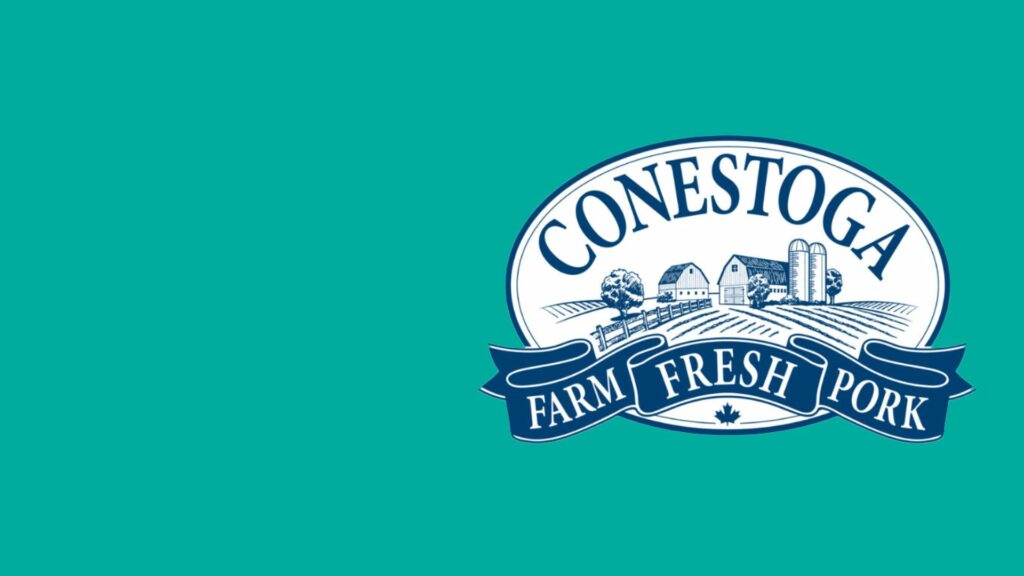Lola Adeyemi’s journey as a food entrepreneur started when she wanted to create an easy way for people to make and share her favourite African soups in Canada.
Adeyemi moved to Canada from Nigeria 15 years ago to attend university in Manitoba. Back then, finding the ingredients to make her favourite dishes at home was hard.
“There were not many African stores, and we had to make do with what we could get,” remembers Adeyemi. “What we’d do is anytime somebody was travelling [to Africa], they would bring you something from home that is dried that you could use to make a nice cultural meal.”
After graduating from university in 2009, she moved to Toronto to work in IT and tech. To her delight, Adeyemi found her African dishes were a hit at office potlucks.
“I’m the kind of person when it comes to Nigerian music, Nigerian food, everything African, I always wanted to share it with people because I felt it was exciting,” says Adeyemi.
“I would bring Nigerian food to every potluck I could, and people were always fighting to take my food home. I was never the one who would still have food left to take to take home.”
Though she enjoyed her job and colleagues in the IT sector, in 2017, she started to want something more.
“I was just thinking about something that I could do on the side,” says Adeyemi. “Something that could create some excitement, that filled that gap that I felt I needed to fill in my life.”
She started thinking of business ideas that would serve Canada’s African community but would also expose others to African culture as well. Then inspiration struck: she could share her culinary talents.
“I thought about different things. But then, the day the idea of food came, I was like, ‘oh my God, that is it. That’s it!’ It was like a lightbulb moment,” says Adeyemi. “It was just that feeling of euphoria.”
She realized she could build upon the passion she felt when preparing for office potlucks by providing people with an easy, accessible way to enjoy African dishes.
Today, Adeyemi is the founder and CEO of It’s Souper, a line of Afro-Fusion gourmet soups and sauces inspired by the fusion of cultures that exist in Canada and her love for the authentic flavours from Africa.
Doing African Food Differently
Though a common route for food entrepreneurs is to open a restaurant, Adeyemi wanted to manufacture something that people could buy and prepare in their homes. Something customers could grab quickly and warm up. Soup was a natural choice.
“I did soups to start because soup is a staple in African culture. We eat soup every day because, for us, soup is a stew. It’s like a hearty meal,” says Adeyemi. “I wanted to bring that idea of what soup is. It’s not tea. It’s a meal, and a healthy meal at that.”
It’s Souper officially launched in 2019, and its products are now carried in retailers such as Sobeys, Whole Foods and many others across Ontario. While the soup products are produced with a co-manufacturer, Adeyemi still makes all the It’s Souper sauces herself at a production facility.
Life as a Food Entrepreneur
Unlike working for an established food manufacturer, starting and running your own firm means you’re involved in every aspect of the business. Adeyemi jokingly calls herself the “Chief Everything Officer.”
Even the other two members of the It’s Souper team get to learn about different facets of the business, giving them new experiences outside their official role. For example, the company’s marketing lead recently helped Adeyemi with sauce production.
“It’s not part of her job description. But I’m like, ‘You know what? I don’t have somebody right now that I can get to help me.’And we made the sauces and bottled them,” she says. “That’s what sometimes happens in a small business, you’re hired for marketing, and then you’re aiding production.”
Being a food entrepreneur is much different than working in IT, but Adeyemi says what she loves most about running a food business is seeing the joy her products bring to people.
“When people stop by [at markets] and taste something, they’re like, ‘Oh, my God, I have never had something like this before. It tastes amazing,’” she says. “The expression on their face, that joy they feel, and the pride that I feel for giving them that joy is what keeps me going.”
She also loves being able to share an essential part of African, and more specifically Nigerian, culture in Canada.
“Food is something that I’m very passionate about. I can positively impact my community and create stories through food about African culture,” says Adeyemi.
“I always tell people, if you don’t tell your story, somebody else is going to rewrite your history.”
Advice for aspiring food entrepreneurs
For those looking to dive into life as a food entrepreneur, Adeyemi says it’s important to do your research. This means doing industry research on your own and finding mentors and connections. She says there’s a strong community of food entrepreneurs on networking websites like LinkedIn.
“I’ve seen now how people have used LinkedIn and reached out to people to actually get advice before starting,” says Adeyemi. “I wish I’d done that, but I didn’t even know I could reach out.”
She also recommends launching your business on a smaller scale.
“Don’t be so in a haste and be like, ‘Oh my God, I need to get into Loblaws. I need to get into the big chain retailers,’” says Adeyemi. “Start small, because even if you speak to mentors, you’re still going to learn because your brand, your product is your innovation, it’s your baby. You’re still going to have to learn to parent that brand yourself.”
Starting small will help ensure you can learn from your mistakes early.
“You’re still going to have some mistakes that you make. But you don’t want to make those mistakes with the big stores because that’s going to cost you a lot,” she says.
Launching on a smaller scale will also help you connect with your customers and perfect your product.
“Start with some small mom and pop stores, do some flea markets,” says Adeyemi. “From the flea markets that I’m doing, I’m getting immediate feedback, as people are sampling and purchasing.”
Discover more opportunities in Food and Beverage processing!
Sign up for a FREE CareersNOW! Jobseeker account!
As a CareersNOW! Jobseeker, you’ll have access to free Job Ready skills training, online job fairs, mentorship sessions, and other resources to learn more about the exciting opportunities in Ontario’s food and beverage processing sector.






